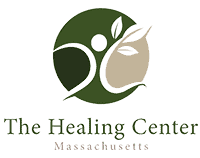Medication-assisted treatment (MAT) for drug addiction has increasingly become more popular in recent years. Using medication in conjunction with proven therapy methods to help those who struggle with addiction find long term, long lasting recovery has become a normal standard in the field of addiction medicine. It can assist in improving the life of even the most chronically relapsing person, and provide a solid foundation in recovery. How does it work, though? What are the benefits? These questions are valid and can help provide an understanding so that someone who is struggling with drug addiction can make an informed decision when beginning the healing process.
How Does Medication-Assisted Treatment Work?
Medication-assisted treatment for drug addiction works by providing alleviation from withdrawal symptoms and cravings so that someone who struggles with addiction can have a better opportunity to stay abstinent. Using medication to help with this in conjunction with behavioral therapies and counseling can make the process of finding recovery smoother, and attainable. Common therapies that are used in MAT regimens include:
- Cognitive Behavioral Therapy (CBT): CBT is a common therapy that was developed to help someone learn to expect problems that could trigger them to relapse. In this therapy, inhibiting ways of thinking are recognized, and replaced with a more positive and conducive train of thought that can help to prevent such relapses from occurring.
- Motivational Enhancement Therapy (MET): this form of therapy that is used in medication-assisted treatment for drug addiction helps to identify any existing barriers or hindrances to change the negative behaviors and stay abstinent. It can provide a quick change in motivation, and lead to a dramatic shift in the person that leads to behaviors changing from negative to positive. This can lead to positive outcomes when it comes to combating potential relapse.
- 12 step programs: the encouragement to participate in 12 step fellowships like AA and NA can provide a solid support system to those using medication-assisted treatment for drug addiction. The members of these fellowships can provide experience and support when times get hard and someone is considering using drugs again.
It is crucial to understand that MAT is not simply replacing one thing for another, it using proven methods to help those seeking to recover from drug addiction find long lasting and long term recovery.
Medications Used
In medication-assisted treatment for drug addiction, there are some specific medications that are used. These medications are beneficial in helping to combat the uncomfortable symptoms of withdrawal, as well as mental and physical cravings that can occur once the drugs are stopped. These medications also serve a dual purpose to block the effects of the drugs if they are used while taking them. The most common medications used in MAT regimens include Suboxone or Subutex, Sublocade, and Vivitrol. All can provide the support needed during the crucial beginning stages of early recovery.
Is MAT Successful?
Medication-assisted treatment for drug addiction has become increasingly more popular since its inception due to its successes. Having the added support of alleviating the uncomfortable symptoms associated with ending drug abuse can help those who have struggled for years to maintain recovery, remain abstinent. Using medications and behavioral therapies as well as counseling to address the physical being as well as the mental well being of someone undergoing addiction treatment can help provide the best possible outcome- long term recovery.
Benefits of Medication-Assisted Treatment
There are many benefits to medication-assisted treatment for drug addiction. This method allows those who struggle with drug addiction to go through symptoms that are associated with long term withdrawal to comfortably go through the process. Things like post acute withdrawal symptoms and cravings are some of the main reasons people seeking recovery go back to using drugs. Being able to make it through these things with minimal discomfort and disruption provides a foundation that could lead to long term recovery.
Another benefit lies in the therapies themselves. The different forms of behavioral therapy and counseling help to teach those who struggle with drug addiction how to positively and proactively fight the urge to use drugs, and maintain their recovery. These coping skills are necessary for when the stages of drug treatment have been completed. Having the knowledge and tools to fight off urges can help those who have struggled for years stay the course.
Finally, using medication-assisted treatment for drug addiction helps someone to remain stable as the brain is reverting back to normal, pre-addiction, functionality. Drugs change the brain’s chemical makeup. The essential proteins and chemicals in the brain are altered, and it can take time to go back to the way it used to be. Having that added support can help someone to hold onto recovery through this process.
Medication-Assisted Treatment in Massachusetts
Drug addiction can be a monster that is difficult to break away from. The benefits of implementing a MAT program to help combat drug addiction are far reaching. If you or a loved one are struggling with drug addiction and in need of help, The Healing Center in Stoughton can help. We offer comprehensive care, and strive to make the healing process as smooth as possible. Call us today and begin the next chapter of your life.

